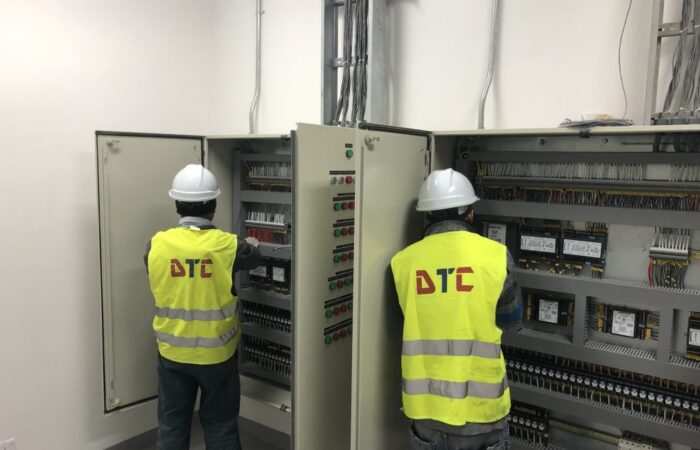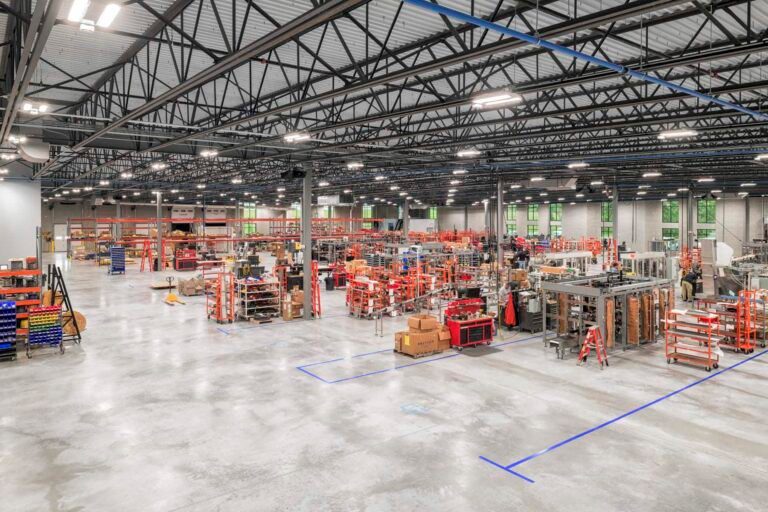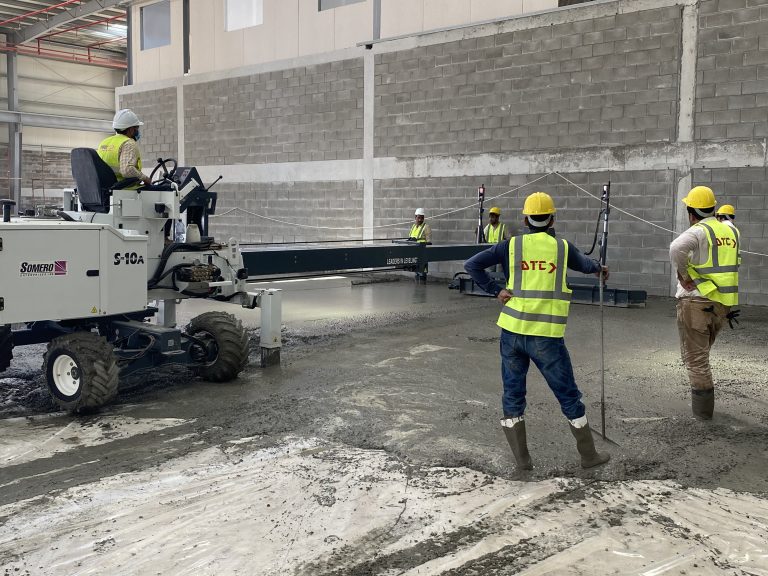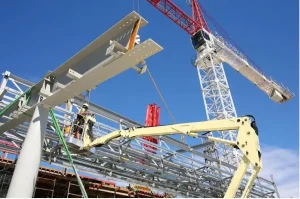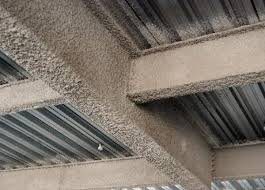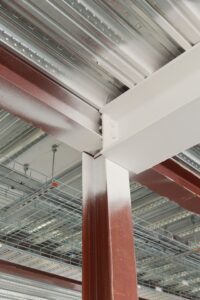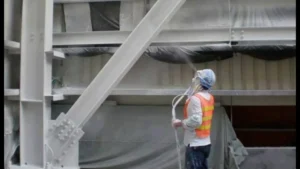Electromechanical (MEP)
Electromechanical systems are found in a wide variety of industries and applications. From the medical industry to transportation, these systems are used in many different ways. But what exactly is an electromechanical system? In short, an electromechanical system is a system that uses both electricity and mechanical power to operate. This can be anything from a simple door opener to a more complex system like an MRI machine. MEP systems are becoming increasingly popular as we move into the digital age. With so many industries relying on them, it’s important to understand how they work and what they can do for you. In this blog post, we’ll explore the basics of MEP systems and their many applications.
What does MEP stand for in electrical?
MEP stands for mechanical, electrical, and plumbing. These are the three main types of systems that make up a building’s infrastructure. MEP systems are designed to work together to provide a comfortable, safe, and efficient environment for occupants.
What is electro mechanical contracting?
An electro mechanical contractor is a professional who specializes in the installation and maintenance of electromechanical systems. These systems can include anything from electrical wiring to HVAC systems, and an electro mechanical contractor has the training and experience necessary to work with them all. In many cases, an electro mechanical contractor will also be able to provide services such as energy audits and retrofits, which can help save you money on your energy bills.
What are MEP devices?
There are a variety of electromechanical devices that can be used in MEP systems. These devices include motors, generators, transformers, and switches. Each of these devices has a unique role to play in the operation of MEP systems.
Motors are used to convert electrical energy into mechanical energy. This mechanical energy can then be used to power various types of equipment. Motors are available in a variety of sizes and power ratings.
Generators are used to convert mechanical energy into electrical energy. This electrical energy can then be used to power various types of equipment. Generators are available in a variety of sizes and power ratings.
Transformers are used to convert electrical energy from one form to another. For example, a transformer can be used to convert AC current into DC current. Transformers are available in a variety of sizes and power ratings.
Switches are used to control the flow of electricity within MEP systems. Switches are available in a variety of sizes and power ratings.
What are the electromechanical works?
The electromechanical systems in a building are responsible for the distribution and use of electrical power, as well as the mechanical systems that keep the environment comfortable. The most common electromechanical systems in buildings are:
-Heating, ventilation, and air conditioning (HVAC)
-Elevators and escalators
-Fire alarm and suppression system
-Plumbing and drainage
-Lighting
Is MEP a good career?
MEP is a great career for those interested in a wide variety of engineering disciplines. MEP engineers are responsible for the design and construction of critical systems in buildings, including electrical, plumbing, fire protection, and HVAC systems.
MEP engineers must have strong technical skills and be able to effectively communicate with other members of the building team. They must also be able to work within tight schedules and budgets.
While the job market for MEP engineers is expected to grow at a slower than average rate over the next decade, there will still be demand for qualified professionals. individuals with experience in green building technologies will likely have the best job prospects.
What do MEP electrical engineers do?
MEP electrical engineers are responsible for the design, installation, and maintenance of electromechanical systems. These systems can include anything from lighting and security systems to HVAC and fire safety systems. MEP engineers must have a thorough understanding of electrical theory and principles in order to create safe and efficient designs. In addition to designing new systems, MEP engineers are often responsible for troubleshooting existing ones. This can involve anything from diagnosing problems to making repairs or modifications.
What is the difference between MEP and HVAC?
MEP and HVAC are both acronyms that stand for common types of mechanical systems used in buildings. However, there is a key difference between the two: MEP stands for “mechanical, electrical, and plumbing,” while HVAC stands for “heating, ventilation, and air conditioning.” In short, MEP covers a wider range of systems than HVAC.
MEP systems are responsible for providing power, light, heat, cooling, water, and waste removal to a building. These systems must be designed to work together efficiently and safely. HVAC systems fall under the umbrella of MEP, but they focus specifically on climate control.
While both MEP and HVAC are important for ensuring the comfort and safety of building occupants, they serve different purposes. When designing or renovating a building, it’s important to consult with an experienced professional who can help you determine which type of system is right for your needs.
Electromechanical (MEP) Contractor
An electromechanical contractor is a professional who provides services related to the installation, maintenance, and repair of electrical and mechanical systems. These contractors are responsible for the design, construction, and operation of these systems in a variety of settings, including commercial, industrial, and residential buildings.
MEP contractors must have a deep understanding of both electrical and mechanical systems in order to properly install or repair them. They must be able to read and interpret blueprints and technical manuals, as well as identify potential problems with these systems. MEP contractors must also be able to safely work with a variety of tools and equipment.
If you are in need of an electromechanical contractor, it is important to choose one who is licensed and insured. You should also ask for references from previous clients to get an idea of the contractor’s quality of work.
Electromechanical (MEP) Contractor saudi arabia
An electromechanical contractor is a professional who provides services related to the installation, maintenance, and repair of electrical and mechanical systems. Saudi Arabia is a country that has a high demand for such services due to the large number of industries and businesses operating there. As a result, there are many electromechanical contractors in Saudi Arabia.
The scope of work for an electromechanical contractor in Saudi Arabia can vary depending on the size and type of project. For example, small projects may only require the installation of electrical wiring, while larger projects may involve the construction of new buildings or the refurbishment of existing ones. In addition to their core activities, most electromechanical contractors in Saudi Arabia also offer other services such as project management, consultancy, and training.
There are many factors to consider when choosing an electromechanical contractor in Saudi Arabia. The most important factor is experience; it is essential to choose a contractor who has experience working on similar projects in order to avoid any potential problems. It is also important to consider the cost of services; while most contractors charge similar rates, there can be significant variation depending on the size and complexity of the project. Finally, it is also advisable to check the reputation of the contractor before selecting them.
mechanical
In electromechanical systems, the interaction between electricity and mechanical components is essential to the functioning of the overall system. These types of systems are used in a wide variety of applications, from consumer electronics to industrial machinery.
MEP systems typically involve the use of electric motors, which convert electrical energy into mechanical energy. This mechanical energy is then used to power various types of machinery or equipment. In many cases, the electrical and mechanical components of MEP systems are integrated into a single device or system.
MEP systems can be found in a wide variety of industries and applications. Some common examples include:
-Automotive industry: Electric vehicles rely on MEP systems for their operation. -Aerospace industry: Aircraft and spacecraft use MEP systems for propulsion, navigation, and other critical functions. -Consumer electronics: Many types of consumer electronics rely on MEP technology, including phones, laptops, and tablets. -Industrial applications: MEP systems are used in a wide variety of industrial settings, from manufacturing plants to construction sites.
electrical
As an electromechanical engineer, you will be responsible for the design, development, and implementation of electrical and mechanical systems. These systems can range from small electronic devices to large-scale power plants.
Your work will involve the application of principles from physics and mathematics in order to understand and solve problems in the field. In addition, you will need to be familiar with a variety of engineering tools and software programs in order to complete your projects.
As an electromechanical engineer, you will have the opportunity to work in a variety of industries, including automotive, aerospace, energy, manufacturing, and more. No matter what industry you choose to work in, you will be able to make a positive impact on the world around us.
plumbing
Plumbing is a vital component of any electromechanical (MEP) system. It ensures the proper functioning of the system by carrying water and other fluids to where they are needed. Plumbing also removes waste from the system, keeping it clean and safe.
Without plumbing, an electromechanical system would not be able to function properly. Water and other fluids are essential for the operation of the system, and plumbing is responsible for delivering them to where they are needed. Plumbing also removes waste from the system, keeping it clean and safe.
Plumbing is a complex field, and there are many different aspects to consider when designing or installing a plumbing system. However, with proper planning and execution, a plumbing system can be a reliable and efficient part of an electromechanical (MEP) system.
Control & BMS, PLC & SCADA
Electromechanical systems are the backbone of many industries, from power generation and distribution to manufacturing and assembly. But what exactly is an electromechanical system?
An electromechanical system is any system that uses both electrical and mechanical energy to perform its functions. This can include anything from simple devices like doorbells and garage door openers to more complex systems like factory automation equipment and robots.
In terms of how they work, electromechanical systems usually consist of three main components: a control system, a motor, and a load. The control system is responsible for regulating the flow of electricity to the motor, which in turn powers the load (whatever it is that the electromechanical system is designed to move or operate).
There are two main types of control systems used in electromechanical systems: direct current (DC) and alternating current (AC). DC control systems are typically used in lower-power applications, while AC control systems are better suited for higher-power applications.
The most common type of motor used in electromechanical systems is the induction motor, which uses an electromagnetic field to generate rotational force. Other types of motors that are sometimes used include brushed DC motors and stepper motors.
Finally, the load is what the electromechanical system is actually designed to move or operate. In many cases, the load will be something that needs to be moved from one place to another, such as a piece of factory equipment or
DTC ( Dorar Tammam Company ) MEP contractor
DTC is a leading MEP contractor in the region with a wealth of experience in delivering quality projects. We offer a complete range of services including design, installation, commissioning and maintenance. Our team of highly skilled engineers and technicians are dedicated to providing our clients with the best possible service. We are committed to safety and quality, and our work is guaranteed to meet the highest standards.

